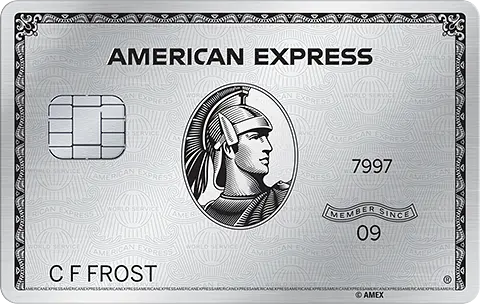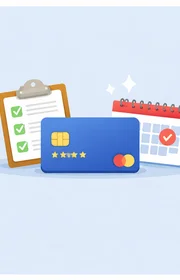It happens to the best of us: you book a flight (maybe months out, maybe transferring miles, maybe stacking your favorite credit-card points). You get everything locked in, like your seat assigned, hotel reserved, car rental done, and then a few weeks later… you get an email: your flight has changed.
Welcome to the world of airline schedule changes. 🙃
Airlines tweak schedules all the time, and these shifts can happen because of aircraft swaps, staffing changes, route optimizations, or seasonal demand. A “minor” change might move your departure by a few minutes. A “major” one could reroute you through another city entirely… like that one time my flight to Seoul (ICN) ended up in Tokyo (NRT)… but that’s another story for another time.
This is when knowing your rights (and having the right credit card) is key. Cards like the Chase Sapphire Reserve®, Capital One Venture X Rewards Credit Card, and the American Express Platinum Card® come with travel protection that can save you time, money, and stress when plans get messy.
Let’s walk through how to deal with schedule changes in both cash and points bookings, and how you can come out ahead.
How to Find Out About a Schedule Change
Most airlines will send an email or app notification when your flight changes, but those alerts aren’t always reliable, especially if you booked through a portal like American Express Travel®, Chase Travel℠, or a partner program.
If you used points through another airline (say, booking a United flight with Aeroplan miles), the notification can take a while to come through. Sometimes, the only way to catch it early is to check yourself.
💡 Pro Tip: Make it a habit to check your itinerary on the operating airline’s website every few weeks, especially for award tickets booked months out. It’s the easiest way to spot changes before they turn into bigger problems.
What to Do When You Booked With Points
If You Booked Directly With the Airline
If your award booking was made straight through the airline’s loyalty program, things are pretty simple. Call or message the airline, explain that your schedule changed, and ask about your options. You can usually accept the new flight, choose an alternative, or cancel for a full mileage refund if the change is significant.
Agents can usually rebook you on a different flight at no extra cost, even if the award space is different, so it never hurts to ask nicely. Be a kind human! 😄
If You Booked Through a Partner Airline
Partner bookings can be a little trickier since one airline issued your ticket and another operates the flight. Always start with the program you booked through, since they’re the ones responsible for fixing it.
If they say they “can’t see” the new flight, ask them to manually contact the partner or reissue the ticket. Be persistent but polite… these changes happen all the time, and a calm follow-up usually gets results.
Steps to Take After a Schedule Change
Once you notice a schedule change, here’s your quick-action checklist:
Review your itinerary carefully. Double-check departure times, connections, and even the aircraft type, and sometimes a new plane means your chosen seat or class of service is no longer available.
Check your connections. A tight layover that was fine before might now be a sprint. Lock in, soldier.
Decide what you want. Do you accept the new flight, rebook, or refund? Know your ideal outcome before you call.
Contact the right party. Cash booking = the airline you paid. Award booking = the loyalty program that issued your ticket.
Document everything. Keep emails, screenshots, and chat logs in case you need proof later for refunds or credit card insurance.
Rebooking, Refunds, and Mileage Rules
If your flight changes by a couple of hours or more, most airlines consider that “significant.” That usually means you can rebook, get a refund, or (in the case of miles), have them redeposited for free (yay!).
If you’re flying to, from, or within Europe, EU 261 rules may also apply, giving you potential compensation for long delays or cancellations.
Partner Airline Quirks
Each loyalty program handles changes differently. Aeroplan, Flying Blue, and Avios all have unique policies, so it’s worth double-checking before you accept or cancel. If your flight was swapped and the award space is no longer there, ask if the airline can open a seat for you on a similar flight — it happens more often than you’d think.
💡 Another Pro Tip: A schedule change can sometimes work in your favor. If you’re polite, you might score a better route, better seat, or even a higher cabin. It never hurts to ask, y’all!
How Schedule Changes Affect Your Trip
Flight times don’t exist in a vacuum, meaning your new arrival might throw off your hotel, rental car, or connecting plans.
If your new flight time means an extra night on the road, travel protections from cards like the Sapphire Reserve or Platinum Card® may cover meals or hotels. Just keep receipts and documentation.
If you booked with cash and have separate travel insurance, review whether “schedule change by carrier” counts as a covered reason… it often does, but not always.
Limitations and Tips for Award Travelers
Award travel is amazing until a schedule change ruins your perfect route. And the reality is that it happens all the time.
If there’s no award space on your new flight, ask the airline to open a seat for you or hold inventory temporarily. If that fails, request a full mileage redeposit and refund of taxes.
Sometimes it’s worth taking a partial downgrade (like from business to premium economy) if it keeps your trip on track. But don’t be shy about asking for a partial mileage refund or a small perk (i.e., lounge access, extra legroom, etc.).
And always keep an eye out for opportunities when things shift. A schedule change could be your golden ticket to a better flight if you know how to ask.
Bottom Line
Schedule changes happen all the time, but they don’t have to derail your trip… or your mood.
Whether you paid cash or points, check your itinerary regularly, act fast when changes pop up, and use your credit card protections to your advantage. Sometimes, a little flexibility (and a good attitude) can turn a flight change into a free upgrade, or at least a great story.












